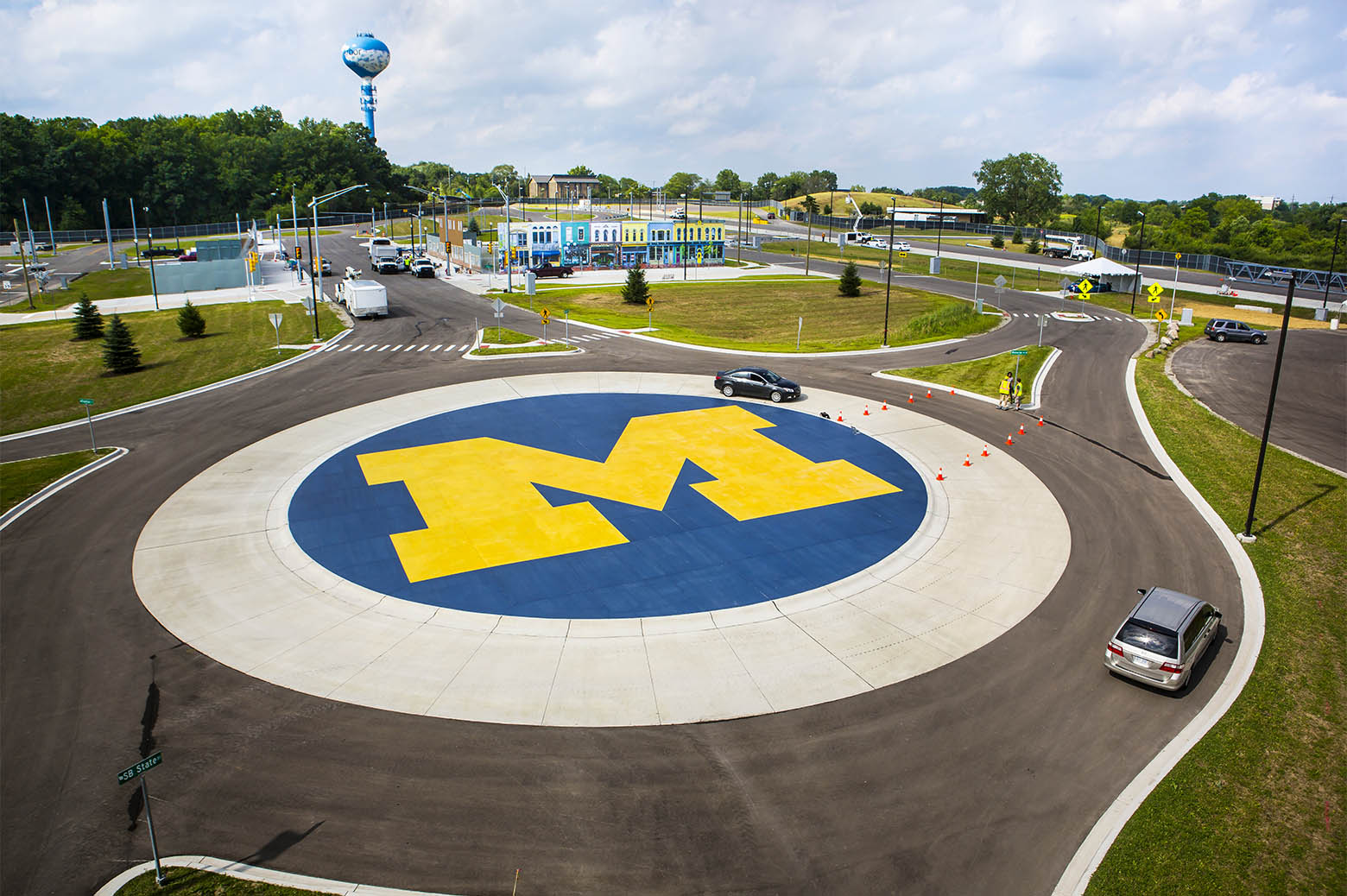
U-M at AutoMobili-D: Schedule of experts and demos
U-M highlights research that aims to enable safe, electric, connected and automated transportation and mobility.

U-M highlights research that aims to enable safe, electric, connected and automated transportation and mobility.
Technology demos, mobility leaders and research with real-world benefits will be part of the University of Michigan-Ann Arbor’s exhibit at the AutoMobili-D technology showcase this week, ahead of the North American International Auto Show.
As a partner in the University Research Corridor’s exhibit, UM-Ann Arbor’s booth will highlight research that aims to enable safe, electric, connected and automated transportation and mobility. U-M, Wayne State University and Michigan State University comprise the URC.
Events will take place in U-M-Ann Arbor’s booth, 425, unless otherwise noted.
10-10:30 a.m.
Gabor Orosz, associate professor of mechanical engineering and civil and environmental engineering
Hao Wang, doctoral student in mechanical Engineering
Orosz and Wang will discuss their project that seeks to improve heavy truck fuel efficiency with CV2X infrastructure on three miles of I-275. The infrastructure provides traffic prediction warnings, among other information. The work is funded by USDOT’s Region 5 University Transportation Center and the U-M Center for Connected and Automated Transportation.
11-11:30 a.m.
Kathleen Klinich, research scientist, UMTRI
Klinich’s work aims to ensure that individuals who travel in wheelchairs are as safe as those in traditional seats. Using a combination of sled testing, computer modeling, hardware development, and volunteer evaluation, the UMTRI team is developing wheelchair securement approaches for AVs that allow independent travel when a driver would not be available to help with securement.
1-1:30 p.m.
Henry Liu, professor of civil and environmental engineering, research professor at UMTRI and director of both Mcity and the Center for Connected and Automated Transportation
Liu will discuss the Safe AI Framework for Trustworthy Edge Scenario, or SAFE, test he developed to reduce the number of miles needed to validate safety of autonomous vehicles by a factor of 1,000. It leverages aggressive, virtual traffic to circumvent the so-called curse of rarity and expose AVs to uncommon but dangerous scenarios. The SAFE test and other digital infrastructure, along with the physical Mcity test track, are available for remote use thanks to Mcity 2.0 funding from the National Science Foundation.
3-5 p.m.
Jim Sayer, UMTRI director
Henry Liu, Mcity director
Alan Taub, U-M Electric Vehicle Center director
Leaders of three of the University of Michigan’s hubs for mobility will be available for interviews. Their units work together and with other efforts across U-M and beyond to advance research and education that leads to safe, electric, connected and automated mobility solutions. Taub is also a professor of materials science and engineering and mechanical engineering.
10-10:30 a.m.
Eric Wingfield, external engagement manager, UMTRI
Bryan White, policy and strategy analyst, Utilidata
UMTRI and Utilidata are collaborating on EV-to-grid integration research. Utilidata’s smart grid chips are collecting real-time voltage, current, and power data from several EV charging stations across U-M’s campus. Understanding when, where and how vehicles are being charged will help maintain grid stability as more EVs plug in.
11:30 a.m. – noon
Patrick Bowman, lead statistician at UMTRI’s Center for the Management of Information for Safe and Sustainable Transportation
Through its Michigan Traffic Crash Facts program, UMTRI provides public access to state crash data and provides sponsors with statistical analysis, visualization, and interpretation of all forms of transportation data. Bowman will demonstrate this powerful data visualization tool.
2-2:30 p.m.
Location: AutoMobili-D Stage (inside exhibit hall)
Ali Abolmaali, dean of the College of Engineering, Wayne State University
Judd Herzer, director of mobility, Michigan State University
Henry Liu, director of Mcity, University of Michigan
Moderator: Zoe Clark, Michigan Radio
2:30-3 p.m.
Beyoung-Keon Daniel Park, associate research scientist, UMTRI
Hayoung Jung, postdoctoral research fellow, UMTRI
Park and Jung will discuss UMTRI’s effort to build a new public repository of 3D human body shapes, building on the institute’s current data at HumanShape.org. UMTRI researchers’ measurement and analysis methods can generate complete body shapes that are representative of the population and yet completely anonymized to respect privacy. The researchers will demonstrate the PassFit Human Measurement System. UMTRI experts have also developed models that predict how design changes affect safety and comfort. UMTRI’s work has been used to improve child restraints, vehicle ingress/egress, headroom, seat design and driver workstation layout.
Francine Romine
Director of Communications & Marketing, UMTRI